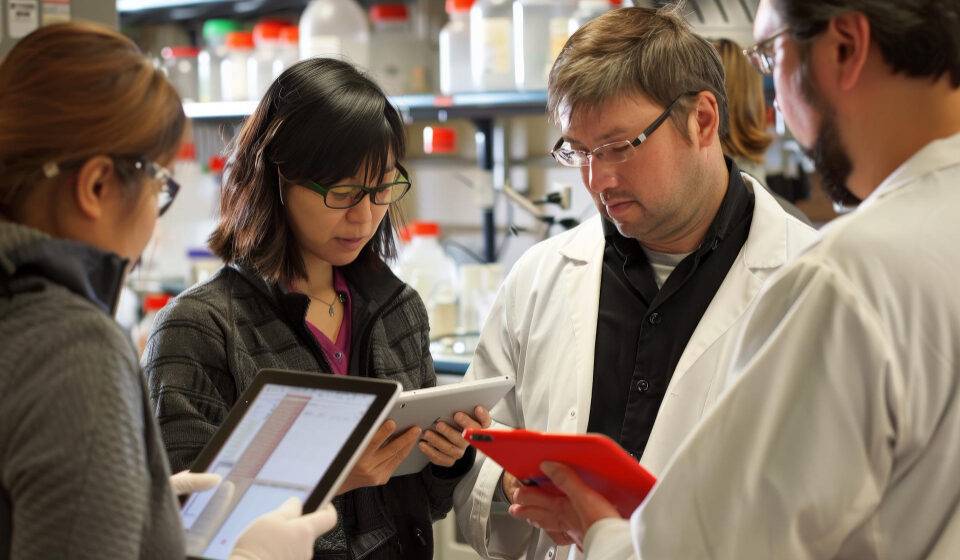What is Pharmacogenomics It is that field of scientific study where pharmacology and genomics combine to discover the responses of an individual to a drug on the basis of his/her specific genes. Pharmacogenomics is different from Pharmacogenetics since the former focuses on the effects of multi-gene on drug response while the latter essentially deals with the effect of a single gene’s response to a drug.
Pharmacogenomics in Clinical Research The application of Pharmacogenomics in clinical research is mainly concerned with tackling the inherent problems of the current pharmaceutical approach that “one size fits all”. Pharmacogenomics can function by providing individual gene-specific approaches to drug discovery and reduction of complications in patients during trials.
 Purpose of Pharmacogenomics Current approaches in clinical research use the trial-and-error method in a lot of stages of drug discovery, pre-clinical trials, clinical trials, etc. This is because experimenting drugs on biological organisms like mice or humans will not give standard sets of responses. This is due to the fact that each organism is different from another organism of the same species. This difference is due to the variation in an organism’s genes. For instance, a drug causing a severe adverse reaction in one patient might not evoke the same response in another patient who appears almost the same.
Purpose of Pharmacogenomics Current approaches in clinical research use the trial-and-error method in a lot of stages of drug discovery, pre-clinical trials, clinical trials, etc. This is because experimenting drugs on biological organisms like mice or humans will not give standard sets of responses. This is due to the fact that each organism is different from another organism of the same species. This difference is due to the variation in an organism’s genes. For instance, a drug causing a severe adverse reaction in one patient might not evoke the same response in another patient who appears almost the same.
Currently, large numbers of patients are tested with drugs and negative responses lead to failure of the tests. This costs companies and patients their money, time and energy among other things. Pharmacogenomics offers a way to develop drugs that can be tailored to a particular patient’s genes. It rationalizes drug therapy for a patient, increases the efficiency of the treatment, and minimizes adverse reactions.
Pharmacogenomics can enable physicians to take into account the characteristics of their patients’ genes prior to prescribing drugs. They can determine the functionality of the various genes which can give an insight to the types and doses of drugs to be used on patients.
Patients can get a clearer understanding of why a drug may not work for them but work on someone else who appears similar.
Applications of Pharmacogenomics – Pharmacogenomics is still in the nascent stages of being adopted fully in the clinical industry. But it’s being used in different stages of clinical research at a smaller scale.
In developing personalized and cost-effective drug therapy strategies to improve patient condition is an application that is already seeing greater adoption of Pharmacogenomics by companies. The Food and Drugs Administration recommends companies to test patients for their genetic profile before administering drugs like Purinethol. Purinethol is a chemotherapy drug used to treat people with acute lymphoblastic leukemia, but some patients who have a genetic variant that affects their ability to process the drug suffer from adverse reactions to the drug. They need a modification in the standard dosage.
In the field of drug discovery, researchers are using genomics information to discover and design drugs for groups of patients who have special genetic profiles. This is becoming a useful alternative to the traditional approach where researchers screened large groups of molecules that had a broad action against a disease. Another area of application is the use of Pharmacogenomics to target specific cellular and molecular pathways involved in the disease. Also, drugs that were previously abandoned due to failures are being researched again to see if they might have an effect on patients who have a certain special genetic make-up. An example of this is the revival of trials of beta-blocker drug Gencaro for the treatment of patients with a heart condition and possessing types of genetic variation.



